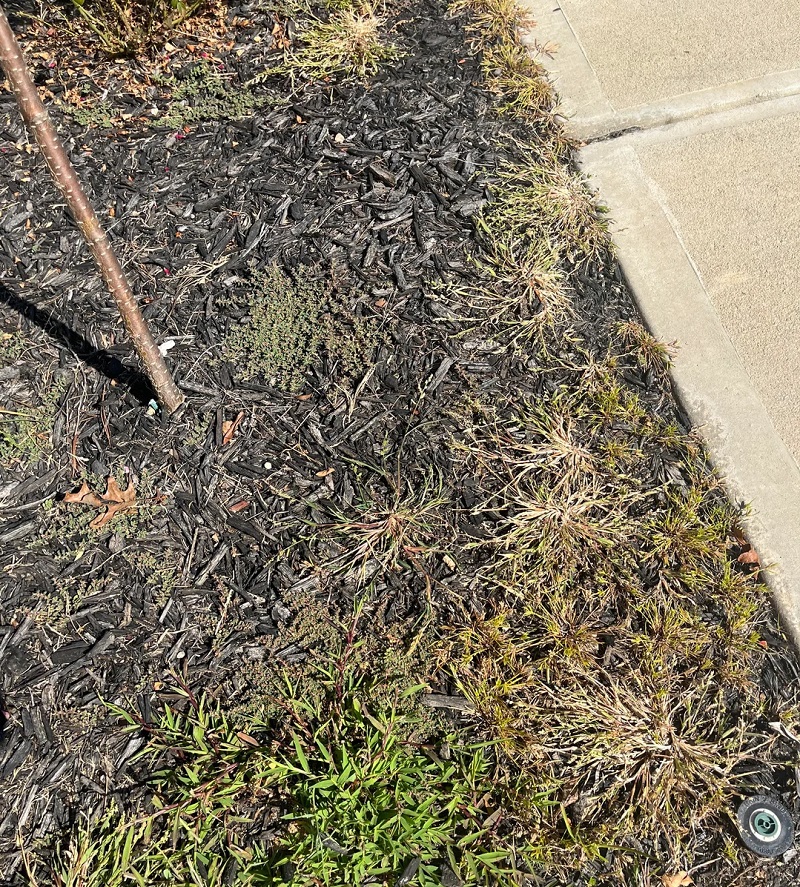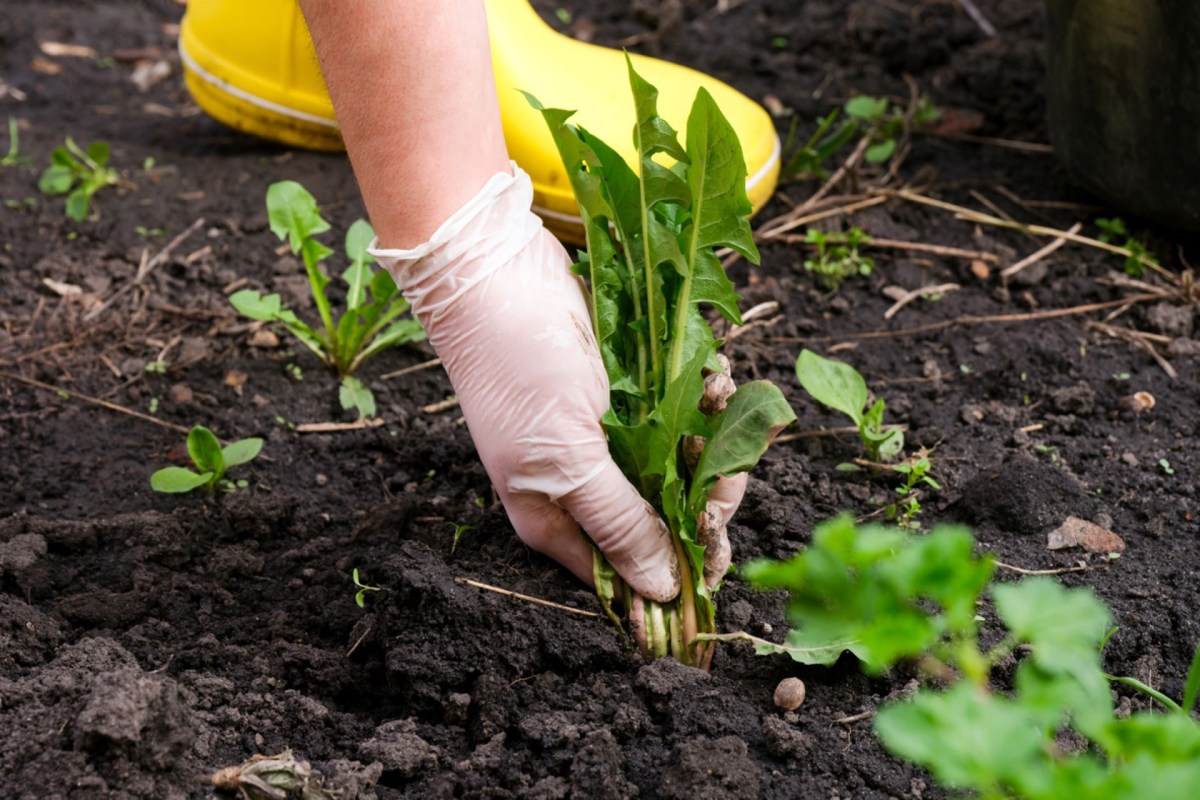A gardener seeking advice on how to deal with weeds was quickly warned against using a common toxic pesticide.
"What is the most effective way to get rid of stubborn flower bed weeds?" they asked in the Subreddit r/gardening. "I'm considering: Physically removing them, Round Up, Salt and Vinegar spray, Cover up with a barrier and Remulch? Thanks!"

Commenters were quick to jump in, and they were unanimous in their response: Avoid chemicals at all costs.
"I would pull them by hand. Then you can put down weed blocker fabric and cover with mulch. Doesn't work perfectly, but definitely helps," one person wrote. They added: "I'd avoid Roundup. It's extremely toxic."
Roundup is a commonly used herbicide whose primary active ingredient is a chemical called glyphosate. Glyphosate has been linked to a number of harmful and even deadly health effects in both humans and animals, including nervous system damage, brain damage, and an increased risk of certain types of cancer.
The herbicide has been banned in several countries, but it's still popular in the United States, where it's commonly used in agriculture.
Another commenter echoed the warning, saying: "Pull them out by the roots. Wait for a big rain, dig or pull them up. Do not use chemicals. It has killed everything already. And gave us cancer. This is the only way."
Fortunately, commenters were quick to suggest alternative methods for eliminating weeds, such as pulling them up by hand, laying down cardboard (instead of landscaping fabric) to smother them, or even using boiling water.
One person suggested: "Place 1 - 2 layers of cardboard and wet it so it stays down. You can also anchor it with wood or bricks. After the weeds and grass are dead, remove the cardboard and pull up the dead plants. You may need to repeat this over time. Good luck."
Other than allowing the soil to thrive, choosing a chemical-free approach to weed control ensures that a yard can remain a healthy and safe haven for pollinators. This is critical, as pollinators are responsible for more than one-third of our food supply.
In addition, choosing to rewild your yard with native plants is generally a lower-cost method of gardening. Native plants are naturally more water efficient, cutting water bills by up to 50%.
This gardener was grateful for the advice.
"Thank you," they wrote, "I will try the cardboard method!"
Join our free newsletter for easy tips to save more, waste less, and help yourself while helping the planet.









